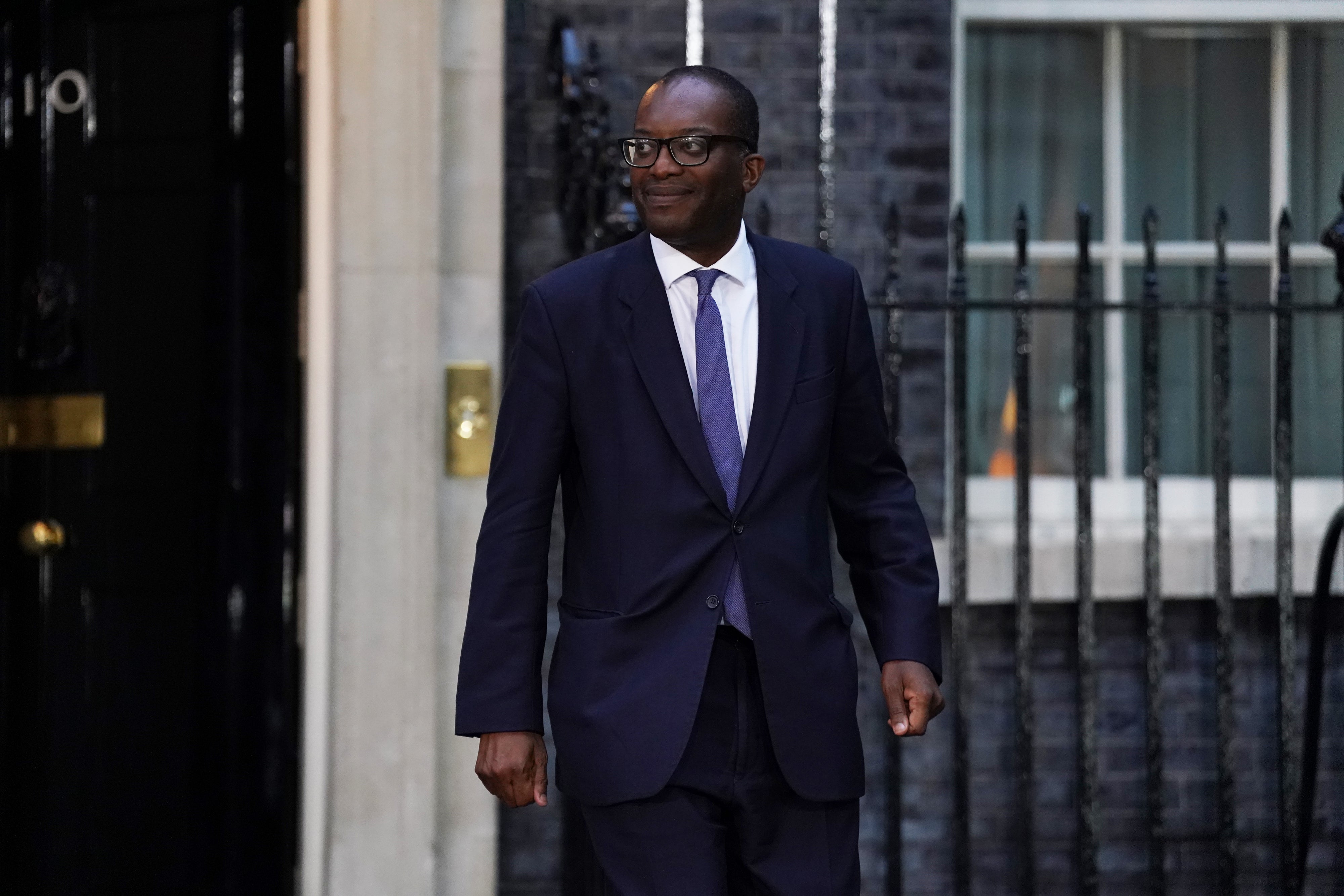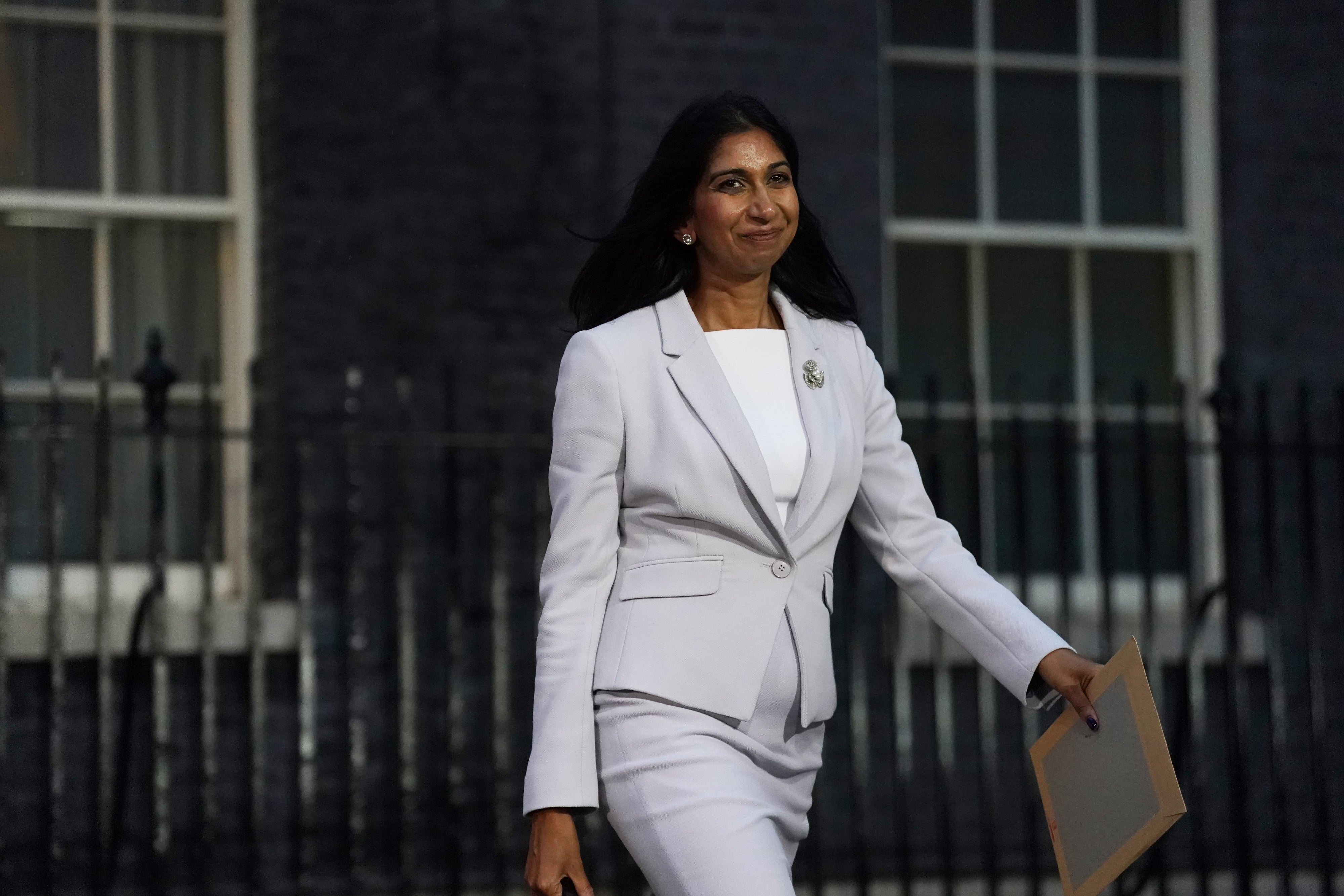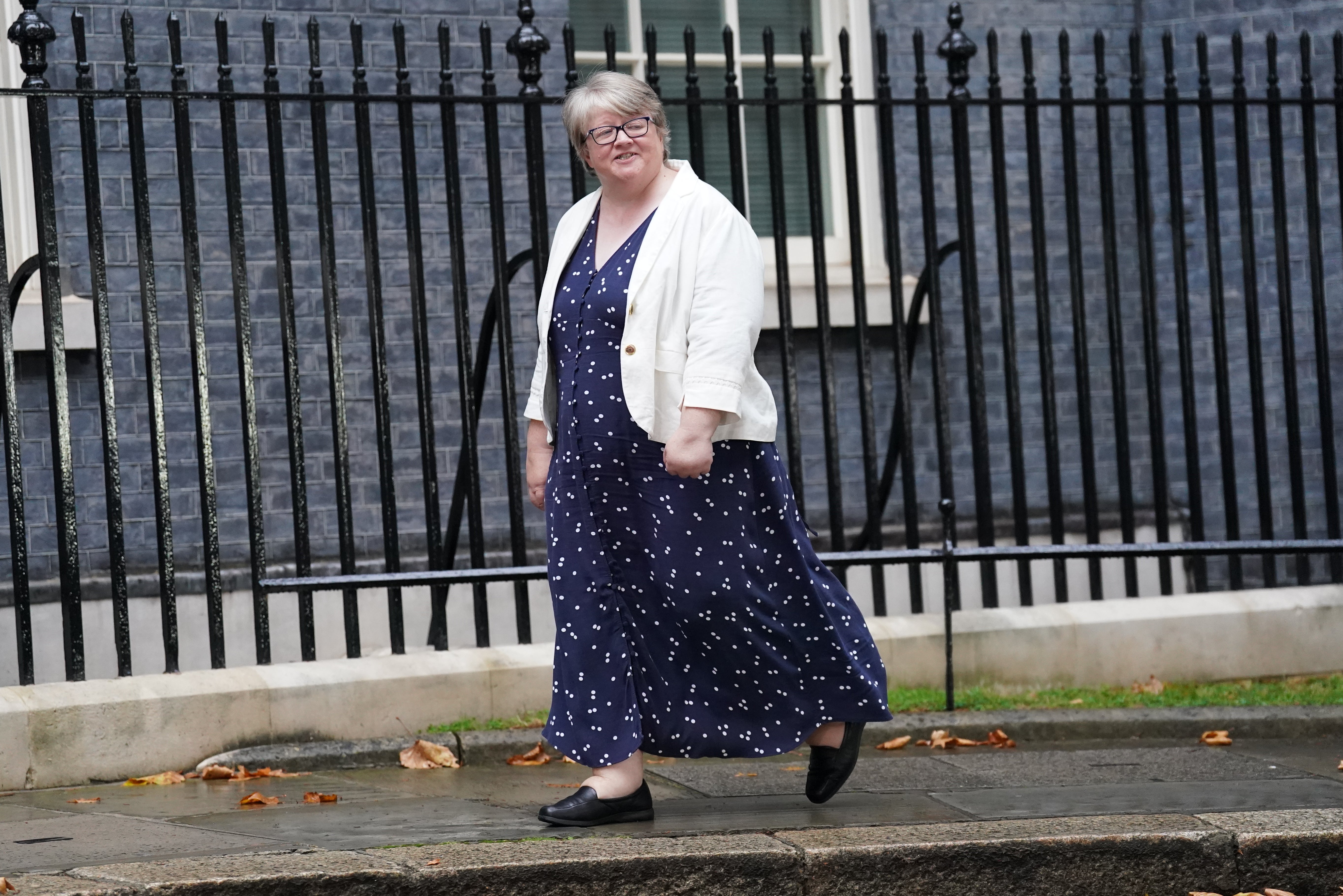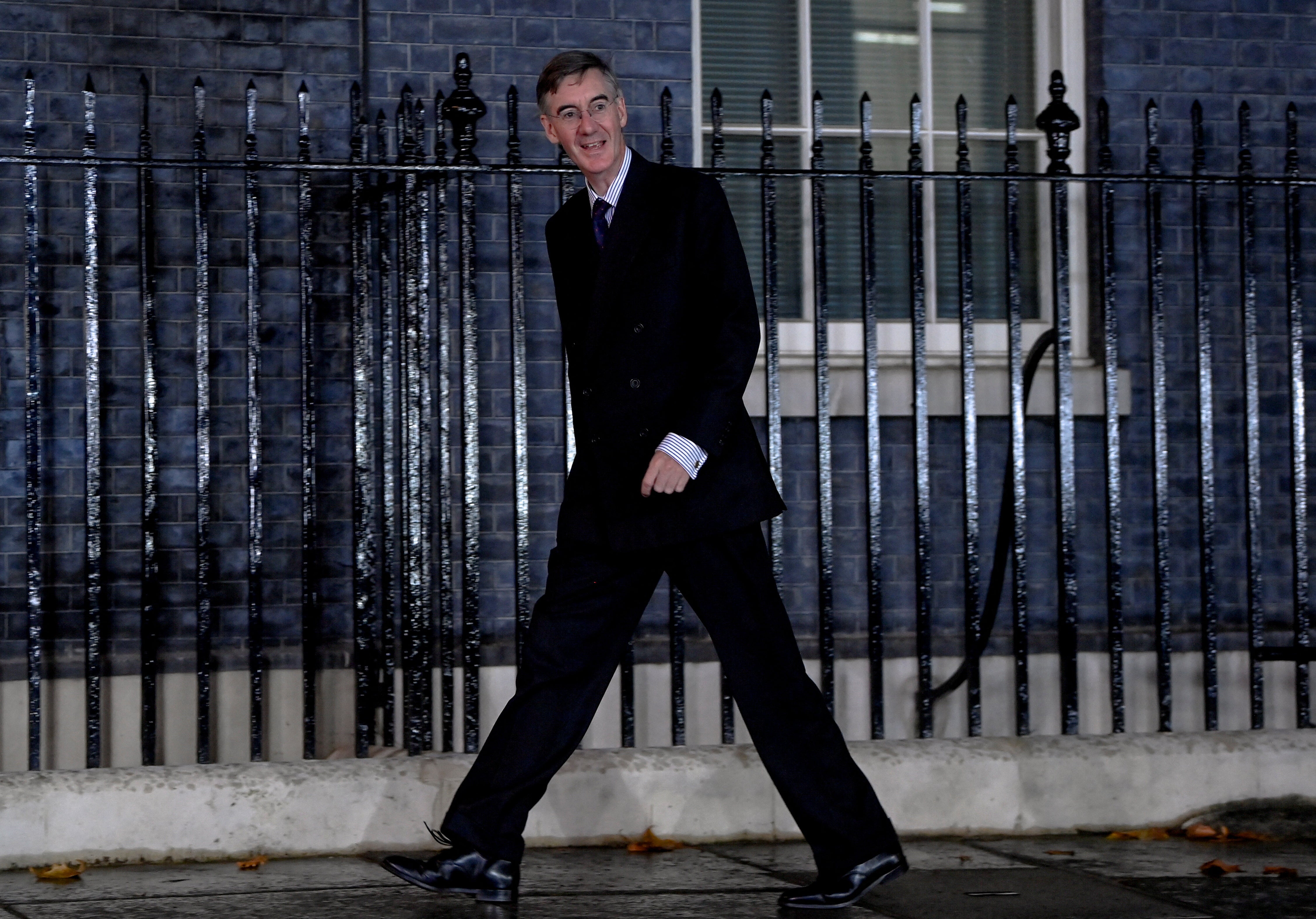Liz Truss’s cabinet in full: Who is in new PM’s top team?
Big shake-up sees Rishi Sunak supporters booted out in favour of leader’s allies
Liz Truss rewarded close allies with top cabinet jobs while removing most supporters of Rishi Sunak from government in a major reshuffle as she took over from Boris Johnson as prime minister.
The bulk of Ms Truss’s appointments are on the Conservative party’s right-wing, dampening hopes that she would try to unite the party after an extremely divisive leadership contest.
One former minister told The Independent of fears that Ms Truss was creating a “cabinet of cronies”, putting personal loyalty over the competence needed at a time of virtually unprecedented crisis.
Ms Truss also sent former deputy PM Dominic Raab and cabinet colleagues Grant Shapps, George Eustice and Steve Barclay to the backbenches after they supported Mr Sunak, her rival in the Tory leadership contest who was more popular among MPs.
Her appointments mean that for the first time in UK history, none of the four great offices of state were held by a white man, in a move welcomed by Tories as a win for “meritocracy”.
Kwasi Kwarteng: Chancellor
Mr Kwarteng, a long-term ally of Ms Truss, entered the Treasury to replace Nadhim Zahawi, who with only 63 days is the job is the second-shortest serving chancellor in more than 200 years.
The new chancellor has the job of holding the UK’s purse strings as the country faces a worsening cost-of-living crisis, with the economy forecast to plunge into recession.

He has been a close political ally of Ms Truss for years and is in tune with her promises to slash taxes and loosen the purse strings to prop up the economy.
He has clashed openly in the past with Mr Sunak on his predecessor’s policies, while he is also said to have often been at logger heads with the Treasury.
Writing in the Financial Times recently, Mr Kwarteng made it clear he is relaxed about bumping up the UK’s already sky-high levels of borrowing to help the economy weather the crisis.
Mr Kwarteng is Britain’s fourth ethnic-minority chancellor in a row – after Sajid Javid, Mr Sunak and Mr Zahawi.
Suella Braverman: Home secretary
A barrister who said the courts should stay out of politics and criticised the civil service for being too “woke” is in charge of perhaps the most challenging government department.
Ms Braverman, 42, will right away have to contend with migrant crossings, a legal challenge to the Rwanda deportation policy, the growing cost of Britain’s asylum system, the highest crime rate in 20 years, passport processing delays and low public trust in police.
She follows controversial figure Priti Patel at the top of the Home Office. Allan Hogarth, Amnesty International UK’s head of policy and government affairs, urged Ms Braverman to “chart a completely different course to her predecessor – one focused on human rights, justice, hope and compassion”.

Ms Braverman is the fifth woman in history to hold the post of home secretary. The first was Labour’s Jacqui Smith, who did the job from 2007 to 2009.
James Cleverly: Foreign secretary
Ms Truss has handed her brief over to Mr Cleverly, a big promotion for the MP for Braintree who has been education secretary for a couple of months since the collapse of Mr Johnson’s government.
The army reservist has previously served as a minister in the Foreign Office under Ms Truss and her predecessor Mr Raab.
He has been an ardent supporter of Ms Truss, introducing her to the stage at the first official hustings with Tory members in Leeds, and suggesting in the wake of her victory that the public will “warm” to her over time.
In his new role, he will help the new PM tackle a daunting in-tray, with the war in Ukraine and relations with China high on the agenda.
Asked by the PA news agency before the Tory leadership result if he would take the foreign secretary job, should it be offered by Ms Truss, he replied simply: “Who wouldn’t accept it?”
Therese Coffey: Health secretary and deputy prime minister
Ms Coffey, the former work and pensions secretary who is regarded as the prime minister’s closest friend in Westminster, replaced Mr Raab as the second in command after he described Ms Truss’s tax plans as an “electoral suicide note”.

She also took on the health brief from Mr Barclay – who had only been in the role since July – after he came out in support for Mr Sunak.
Ben Wallace: Defence secretary
Mr Wallace will continue in his role, as he plays a vital role in Britain’s support for Ukraine’s fight against Vladimir Putin’s invasion.
The defence secretary was the favourite among Tory members to take over from Mr Johnson but he did not throw his hat into the ring in the race to replace him.
Jacob Rees-Mogg: Business, energy and industrial secretary
As a net-zero sceptic who once blamed high energy prices on “climate change alarmism”, Mr Rees-Mogg’s appointment has worried environmental campaigners.
Climate activists and opposition politicians said his appointment was “deeply worrying.”
Earlier this year Mr Rees-Mogg said Mr Johnson’s government wanted “every last drop” of oil and gas from the North Sea dismissing warnings that a renewed push for fossil fuels would ruin the UK’s chances of achieving net zero by 2050.

“2050 is a long way off,” Mr Rees-Mogg told LBC at the time. “We’re not trying to become net zero tomorrow. We’re going to need fossil fuels in the interim.”
The cabinet minister also described the idea of reopening fracking sites “quite an interesting opportunity.”
Simon Clarke: Levelling up secretary
Mr Clarke replaces another Mr Clarke, Greg, as secretary for levelling up, housing and communities after a stint as chief secretary to the treasury.
He said he would “give it my all” in carrying out the flagship policy of Ms Truss’s predecessor, one that could prove extremely politically damaging if not delivered.
Chris Heaton-Harris: Northern Ireland secretary
Mr Heaton-Harris takes on the Northern Ireland brief as the new prime minister prepares to go ahead with a plan to rip-up Britain’s post-Brexit trading arrangements with the EU.
Politicians on the island of Ireland have congratulated the former chief whip on his appointment, with unionists calling for action on the Northern Ireland Protocol and the Irish republic’s foreign minister Simon Coveney said Mr Heaton-Harris’s first priority should be fixing the NI executive after unionists pulled out over the protocol.
A self-described “fierce Eurosceptic” on his website, Mr Heaton-Harris was chairman of the European Research Group of pro-Brexit Conservative MPs between 2010 and 2016.
Nadhim Zahawi: Chancellor of the Duchy of Lancaster, minister for intergovernmental relations and minister for equalities
Mr Zahawi has been demoted from the top of the treasury, making him the second-shortest serving chancellor in 200 years. The only modern chancellor to have served less time than him, Iain Macleod, died after 30 days in the role in 1970.
Chancellor of the Duchy of Lancaster was a title given to Michael Gove when he was effectively Mr Johnson’s deputy. With Ms Coffey as deputy prime minister, it is uncertain what is expected of Mr Zahawi in the role.
Elsewhere, Brandon Lewis was made justice secretary and lord chancellor, Michelle Donelan was appointed culture secretary, Penny Mordaunt was made leader of the Commons, Kemi Badenoch was made trade secretary and president of the board of trade, Alok Sharma stayed as COP26 President, Wendy Morton was made chief whip, Ranil Jayawardena was made environment secretary, Kit Malthouse was made education secretary, Chloe Smith was made work and pensions secretary, Tom Tugendhat was made security minister at the cabinet table, Jake Berry was made minister without portfolio and Tory chair and Lord True was made leader of the Lords.
Join our commenting forum
Join thought-provoking conversations, follow other Independent readers and see their replies
Comments


Bookmark popover
Removed from bookmarks